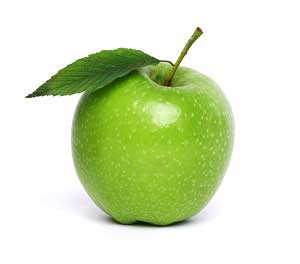2025 Think Dirty Awards Winners
Best Serum • Best Lotion
Unlock Your Best Skin Yet! Get 15% off Storewide with code SKINWIN

Scientific Name: {Malus domestica}
Common Name: {PhytoCellTec, Apple stem cells}

These stem cells derive from rare Swiss apples and are part of an award-winning study into stem cells' function and tissue regeneration effects.
PhytoCell Tec works deep within the skin to both prolong the life of healthy cells and provide the nutrients that the skin needs to produce healthier, longer-living cells in the long term.
Though its name (Uttwiler Spatlauber) is amusing, the apple's amazing properties are nothing to joke about. This rare apple species is revered for its stores over cold Swiss winters.
This property was the impetus behind studies into its ability to preserve a youthful-looking face.
What researchers found was impressive. The PhytoCell Tec Malus Domestica could lend its longevity to skin cells. Aging signs significantly decreased. As we grow older, our skin cannot produce as many healthy cells as it once did when we were younger.
It gets harder to replace aging cells as they begin to age faster. However, by elongating healthy cells' lives, the face can look younger and more beautiful for extended periods.
This ingredient also aids in regenerating new, healthy cells infused with the ability to live long, full lives and increase longevity.

Not only do they rejuvenate by prolonging cells' lives, but they also delivers many of the components skin needs.
These nutrients form the building blocks of cells to ensure the skin has the ingredients it needs to accelerate the regeneration process.
All of these benefits are combined with a powerful UV protectant. Working to block the harmful effects of the sun's rays, you can still get your mood-boosting, vitamin-enhancing sunshine without the chance of sunburn or long-lasting photo-aging.
During a four-week study, researchers found that twenty women saw a 15% reduction in wrinkles' intensity and depth. In addition, using PhytoCell Tec Malus Domestica at the first signs of aging can delay the appearance of further wrinkles.
Even after wrinkles and lines develop, using it can even out the complexion and fill in the look of even deep wrinkles.
PhytoCell Tec Malus Domestica can be found in anti-aging serums or added to boost your favorite eye cream. You can even add the ingredient directly to makeup to cover and reverse the look of age lines.
Because it is all-natural, it is unlikely to irritate even the most sensitive skin. As a result, it revives your complexion with longevity and delays the signs of aging.
The Importance of Antioxidants in Skincare Products
Antioxidants play a vital role in skin care due to their ability to combat free radicals. Free radicals are unstable molecules that can damage the skin cells, accelerating the aging process and leading to issues such as fine lines, wrinkles, dark spots, and a dull complexion. Factors like UV radiation, pollution, and stress can increase the number of free radicals our skin encounters.
Benefits of Antioxidants in Skincare
Benefits of Using Photocell Malus Domestica (Apple Stem Cells) in Skincare Products
Incorporating antioxidants and specialized ingredients like apple stem cells into your skincare routine offers a comprehensive approach to skin health, ensuring that your skin remains youthful, vibrant, and resilient against external stressors.
Sources:
https://www.ncbi.nlm.nih.gov/pmc/articles/PMC5674215/ https://mibellebiochemistry.com/phytocelltectm-malus-domestica-skin
About the Author
Kari Thomas wrote this article.